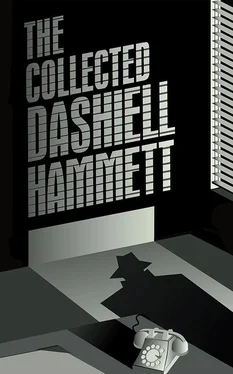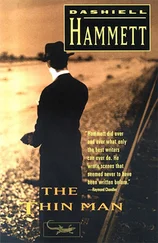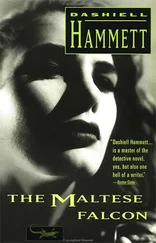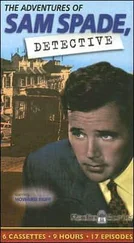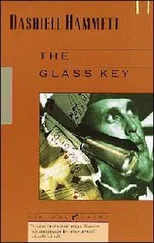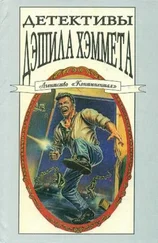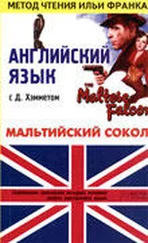(written ~ 1926/27); aka: A Man Named Thin ( Ellery Queen’s Mystery Magazine, February 1, 1961)
Papa was, though I may be deemed an undutiful son for saying it, in an abominable mood. His chin protruded across the desk at me in a fashion that almost justified the epithet of brutal which had once been applied to it by an unfriendly journalist; and his mustache seemed to bristle with choler of its own, though this was merely the impression I received. It would be preposterous to assume actual change in the mustache which, whatever Papa’s humor, was always somewhat irregularly salient.
“So you’re still fooling with this damned nonsense of yours?”
On Papa’s desk, under one of his hands, lay a letter which, its odd shape and color informed me immediately, was from the editor of The Jongleur to whom, a few days before, I had sent a sonnet.
“If you mean my writing,” I replied respectfully, but none the less staunchly; for my thirtieth birthday being some months past, I considered myself entitled to some liberty of purpose, even though that purpose might be distasteful to Papa. “If you mean my writing, Papa, I assure you I am not fooling, but am completely in earnest.”
“But why in” — if now and then I garble Papa’s remarks in reporting them, it is not, I beg you to believe, because he is addicted to incoherencies, but simply because he frequently saw fit to sacrifice the amenities of speech to what he considered a vigor of expression — “do you have to pick on poetry? Aren’t there plenty of other things to write about? Why, Robin, you could write some good serious articles about our work, articles that would tell the public the truth about it and at the same time give us some advertising.”
“One writes what one is impelled to write,” I began not too hopefully, for this was by no means the first time I had begun thus. “The creative impulse is not to be coerced into—”
“Florence!”
I do not like to say Papa bellowed, but the milder synonyms are not entirely adequate to express the volume of sound he put into our stenographer’s given name by which he insisted on addressing her.
Miss Queenan appeared at the door — an unfamiliar Miss Queenan who did not advance to Papa’s desk with that romping mixture of flippancy and self-assurance which the press, with its propensity to exaggerate, has persuaded our generation to expect; instead, she stood there awaiting Papa’s attention.
“After this, Florence, will you see that my desk is not cluttered up with correspondence dealing with my son’s Mother Goose rhymes!”
“Yes, Mr. Thin,” she replied in a voice surprisingly meek for someone accustomed to speak to Papa as if she were a member of his family.
“My dear Papa,” I endeavored to remonstrate when Miss Queenan had retired, “I really think—”
“Don’t dear Papa me! And you don’t think! Nobody that thought could be such a...”
It would serve no purpose to repeat Papa’s words in detail. They were, for the most part, quite unreasonable, and not even my deep-seated sense of filial propriety could enable me to keep my face from showing some of the resentment I felt; but I heard him through in silence and when he had underscored his last sentence by thrusting The Jongleur’s letter at me, I withdrew to my office.
The letter, which had come to Papa’s desk through the carelessness of the editor in omitting the Jr. from my name, had to do with the sonnet I have already mentioned — a sonnet entitled “Fictitious Tears.” The editor’s opinion was that its concluding couplet, which he quoted in his letter, was not, as he politely put it, up to my usual standard, and he requested that I rewrite it, adjusting it more exactly to the tone of the previous lines, for which it was, he thought, a trifle too serious.
And glisten there no less incongruously
Than Christmas balls on deadly upas tree .
I reminded myself, as I took my rhyming dictionary from behind Gross’s Kriminal Psychologie where, in the interest of peace, I habitually concealed it, that I had not been especially pleased with those two lines; but after repeated trials I had been unable to find more suitable ones. Now, as I heard the noon whistles, I brought out my carbon copy of the sonnet and determined to devote the quiet of the luncheon hour to the creation of another simile that would express incongruity in a lighter vein.
To that task I addressed myself, submerging my consciousness to such an extent that when I heard Papa’s voice calling “Robin!” with a force that fairly agitated the three intervening partitions, I roused as if from sleep, with a suspicion that the first call I had heard had not been the first Papa had uttered. This suspicion was confirmed when, putting away paper and books, I hastened into Papa’s presence.
“Too busy listening to the little birdies twitter to hear me?” But this was mere perfunctory gruffness; his eyes were quite jovial so that in a measure I was prepared for his next words. “Barnable’s stuck up. Get to it.”
The Barnable Jewelry company’s store was six blocks from our offices, and a convenient street car conveyed me there before Papa’s brief order was five minutes old. The store, a small one, occupied a portion of the ground floor of the Bulwer Building, on the north side of O’Farrell Street, between Powell and Stockton Streets. The store’s neighbors on the ground floor of the same building were, going east toward Stockton Street, a haberdasher (in whose window, by the way, I noticed an intriguing lavender dressing robe), a barber shop, and a tobacconist’s; and going westward toward Powell Street, the main entrance and lobby of the Bulwer Building, a prescription druggist, a hatter, and a lunchroom.
At the jeweler’s door a uniformed policeman was busily engaged in preventing a curious crowd, most of whom presumably out on their luncheon hours, from either blocking the sidewalk or entering the store. Passing through this throng, I nodded to the policeman, not that I was personally acquainted with him but because experience had taught me that a friendly nod will often forestall questions, and went into the store.
Detective-Sergeant Hooley and Detective Strong of the Police Department were in the store. In one hand the former held a dark gray cap and a small automatic pistol which did not seem to belong to any of the people to whom the detectives were talking: Mr. Barnable, Mr. Barnable’s assistant, and two men and a woman unknown to me.
“Good morning, gentlemen,” I addressed the detectives. “May I participate in the inquiry?”
“Ah, Mr. Thin!”
Sergeant Hooley was a large man whose large mouth did nothing to shape his words beyond parting to emit them, so that they issued somewhat slovenly from a formless opening in his florid face. His face held now, as when I had engaged him in conversation heretofore, an elusively derisive expression — as if, with intent to annoy, he pretended to find in me, in my least word or act, something amusing. The same impulse was noticeable in the stressed mister with which he invariably prefixed my name, notwithstanding that he called Papa Bob, a familiarity I was quite willing to be spared.
“As I was telling the boys, participating is just exactly what we need.” Sergeant Hooley exercised his rather heavy wit. “Some dishonest thief has been robbing the joint. We’re about through inquiring, but you look like a fellow that can keep a secret, so I don’t mind letting you in on the dirt, as we used to say at dear old Harvard.”
I am not privy to the quirk in Sergeant Hooley’s mind which makes attendance at this particular university constitute, for him, a humorous situation; nor can I perceive why he should find so much pleasure in mentioning that famous seat of learning to me who, as I have often taken the trouble to explain to him, attended an altogether different university.
Читать дальше
